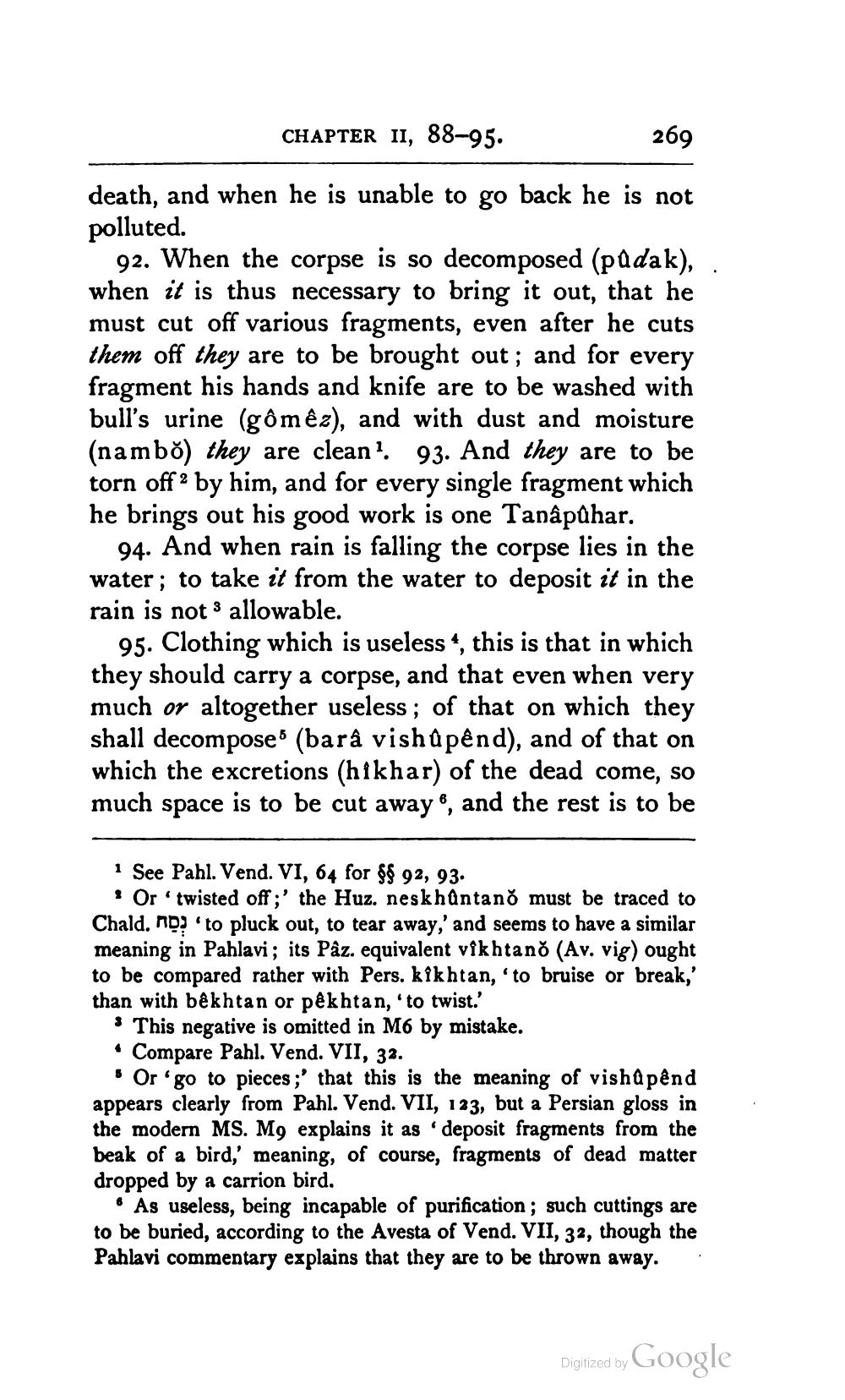________________
CHAPTER 11, 88-95.
269
death, and when he is unable to go back he is not polluted.
92. When the corpse is so decomposed (padak), when it is thus necessary to bring it out, that he must cut off various fragments, even after he cuts them off they are to be brought out; and for every fragment his hands and knife are to be washed with bull's urine (gôm êx), and with dust and moisture (nambo) they are clean?. 93. And they are to be torn off 2 by him, and for every single fragment which he brings out his good work is one Tanâpühar.
94. And when rain is falling the corpse lies in the water; to take it from the water to deposit it in the rain is not s allowable.
95. Clothing which is useless 4, this is that in which they should carry a corpse, and that even when very much or altogether useless; of that on which they shall decompose (barâ vish û pênd), and of that on which the excretions (hikhar) of the dead come, so much space is to be cut away 6, and the rest is to be
1 See Pahl. Vend. VI, 64 for $$ 92, 93.
? Or 'twisted off ;' the Huz. neskhantano must be traced to Chald. ND! 'to pluck out, to tear away,' and seems to have a similar meaning in Pahlavi; its Paz. equivalent vikhtano (Av. vig) ought to be compared rather with Pers. kikhtan, to bruise or break,' than with bêkhtan or pêkhtan, to twist.'
* This negative is omitted in M6 by mistake. • Compare Pahl. Vend. VII, 32.
. Or go to pieces ;' that this is the meaning of vishû pênd appears clearly from Pahl. Vend. VII, 123, but a Persian gloss in the modern MS. M9 explains it as 'deposit fragments from the beak of a bird,' meaning, of course, fragments of dead matter dropped by a carrion bird.
. As useless, being incapable of purification; such cuttings are to be buried, according to the Avesta of Vend. VII, 32, though the Pahlavi commentary explains that they are to be thrown away.
Digitized by Google




